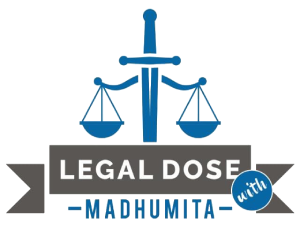The high-profile legal battles involving actor Johnny Depp, his ex-wife Amber Heard, and the British tabloid The Sun have captivated public attention and highlighted significant differences between the legal systems of the United Kingdom and the United States. This article aims to analyze the two defamation cases, their contrasting verdicts, and the factors that led to different outcomes on either side of the Atlantic.
The UK Case: Depp vs. News Group Newspapers Ltd
In 2018, The Sun published an article labeling Johnny Depp a “wife-beater” in reference to allegations made by Amber Heard. Depp sued the newspaper’s publisher, News Group Newspapers Ltd, and its executive editor, Dan Wootton, for libel in the UK High Court.
The trial took place in 2020, with Justice Andrew Nicol presiding. In November 2020, the court ruled in favor of The Sun, finding that the article was “substantially true.” The judge concluded that 12 of the 14 alleged incidents of domestic violence had occurred.
Key aspects of the UK case:
1. Burden of proof: In UK libel cases, the burden of proof lies with the defendant. The Sun had to prove that their claims were substantially true.
2. Standard of proof: The civil standard of “balance of probabilities” was applied, meaning the judge had to decide whether it was more likely than not that the allegations were true.
3. No jury: The case was decided by a single judge, which is common in UK defamation cases.
4. Focus on the publisher: The case was against the newspaper, not Heard directly.
The US Case: Depp vs. Heard
In 2019, Depp filed a $50 million defamation lawsuit against Heard in Virginia, USA, over an op-ed she wrote for The Washington Post in 2018. Although Depp wasn’t named in the article, he claimed it implied he was an abuser and damaged his career. Heard countersued for $100 million.
The trial took place in 2022 and was live-streamed, attracting global attention. In June 2022, the jury found both parties liable for defamation but awarded significantly more damages to Depp.
Key aspects of the US case:
1. Burden of proof: In US defamation cases, the burden of proof is on the plaintiff. Depp had to prove that Heard’s statements were false and made with actual malice.
2. Jury trial: A jury of seven people made the decision, unlike in the UK case.
3. First Amendment considerations: US defamation law is influenced by strong protections for free speech under the First Amendment.
4. Direct confrontation: The case was between Depp and Heard, not involving a third-party publisher.
Analyzing the Differences
Several factors contributed to the contrasting outcomes:
1. Legal systems: The UK’s plaintiff-friendly libel laws contrast with the US system, which places a higher burden on public figures claiming defamation.
2. Evidence presentation: The US trial allowed for more extensive evidence presentation and cross-examination, including audio recordings that were not central to the UK case.
3. Jury vs. judge: The emotional impact of testimony and evidence may have affected the jury differently than a seasoned judge.
4. Public opinion: The televised US trial allowed for greater public scrutiny and opinion formation, potentially influencing the jury.
5. Scope of claims: The UK case focused specifically on The Sun’s “wife-beater” claim, while the US case addressed broader implications of domestic abuse allegations.
Evidence Analysis
Both trials examined similar evidence, including testimonies, photographs, audio recordings, and text messages. However, the interpretation and weight given to this evidence differed:
1. Witness credibility: In the UK, the judge found Heard to be a credible witness. In the US, the jury seemed to find Depp more credible.
2. Audio recordings: Recordings of arguments between Depp and Heard played a more significant role in the US trial, potentially swaying the jury’s perception.
3. Photographic evidence: Both trials examined photos of alleged injuries, but their interpretation varied between the judge and jury.
4. Expert testimony: The US trial featured more extensive expert testimony on topics like psychology and damage to reputation.
5. Character witnesses: The US trial included more character witnesses for both parties, potentially influencing the jury’s perception of their personalities and credibility.
Implications and Reflections
The contrasting outcomes of these cases have sparked debates about the effectiveness of different legal systems in handling defamation claims, especially those involving public figures and sensitive issues like domestic abuse.
1. Media responsibility: The UK verdict upheld the media’s right to report on allegations of public interest, while the US verdict may have a chilling effect on reporting abuse claims.
2. Public figure defamation: The cases highlight the challenges public figures face in protecting their reputations while balancing free speech concerns.
3. Domestic abuse awareness: Both cases brought attention to the complexities of domestic abuse situations, challenging public perceptions.
4. Trial by media: The extensive coverage of the US trial raised questions about the impact of public opinion on legal proceedings.
5. International legal differences: The cases underscore how similar facts can lead to different outcomes in different legal systems.
Conclusion
The Depp-Heard defamation cases offer a unique opportunity to compare and contrast the UK and US legal systems in handling high-profile defamation claims. While both systems aim to balance the protection of reputation with freedom of expression, their different approaches led to starkly different outcomes.
These cases have not only captivated public attention but also prompted important discussions about domestic abuse, media responsibility, and the nature of truth in the public sphere. As the legal dust settles, the broader implications of these verdicts on defamation law, media reporting, and public discourse on sensitive issues remain to be seen.
Ultimately, these cases serve as a reminder of the complexities inherent in legal systems and the challenges of adjudicating truth in the court of law, especially when dealing with personal relationships and public figures.


